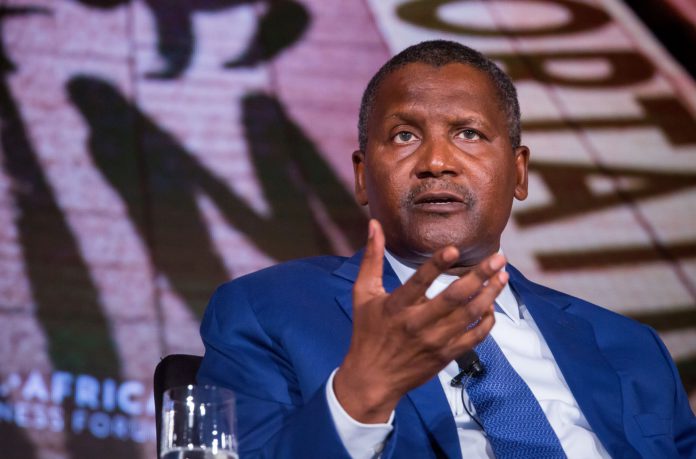With his assets valued at $23.9 billion, business mogul Aliko Dangote has been ranked as the 86th richest person in the world, according to Forbes magazine.
He retains his position as Africa’s wealthiest individual, with his fortune surging by 100 percent in the past 12 months.
Dangote climbed from 144th place in last year’s ranking—when his net worth stood at $13.4 billion—to his current position, largely due to his 92.3 percent stake in Dangote Petroleum Refinery & Petrochemicals.
At 67, he has re-entered the top 100 richest individuals globally, a position he last held in 2018, according to the Forbes Real-Time Billionaires List.
He remains significantly ahead of South Africa’s Johann Rupert, who ranks 161st with an estimated $14.4 billion, and Nigeria’s second-richest person, Mike Adenuga, who is 481st with a net worth of $6.8 billion.
Dangote made history by breaking the oil monopoly with the construction of Africa’s largest petroleum refinery.
After 11 years of challenges, the $23 billion Dangote Refinery began operations last year.
Located on a vast 6,200-acre site in the Lekki Free Zone, the refinery can process 650,000 barrels per day (b/d) at full capacity, making it the seventh-largest refinery in the world and the largest in Africa. Additionally, its adjacent petrochemical complex produces 3 million metric tons of urea annually, making it Africa’s largest fertilizer producer.
The refinery is already reshaping global energy markets. Nigeria’s petroleum imports are projected to drop to an eight-year low, impacting European refiners that traditionally supplied the country, according to energy intelligence firm Vortexa. Furthermore, Nigeria has now become a net exporter of jet fuel, naphtha, and fuel oil, according to S&P Global.
Dangote envisions the refinery as a transformative project that will enable Nigeria, one of the world’s largest crude oil producers, to become a major supplier of refined petroleum products—allowing the country to compete with European refineries and supply fuel to local consumers.
He admitted that the refinery was the biggest risk of his career.
“It was the biggest risk of my life,” Dangote said. “If this didn’t work, I was dead.”

